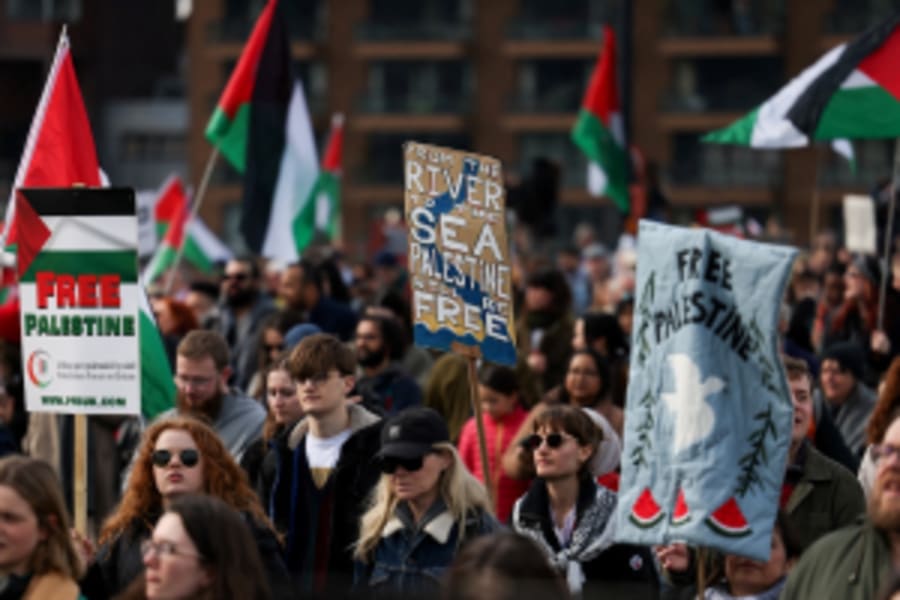From death to life: Former Israeli hostage Segev Kalfon shares horrors of captivity and the biblical story of Joseph

The family of former hostage, Segev Kalfon, had no idea whether he was alive or dead until February. He had been abducted two years ago from the Nova Music Festival on Oct. 7, 2023, and experienced some of the worst treatment of any of the hostages. Now he is sharing what he went through in captivity.
In a Ynet News report, Kalfon expressed some of the horrors he endured in the Hamas terror tunnels, living “like rats,” constantly on the edge of death. Now 27, the resident of the southern Israeli town of Arad, relayed how he had been tormented simply for saying his name “Segev,” which sounds like the Arabic word for ceiling, and was brutally beaten every time he said it.
“They didn’t believe me and started beating me,” he recalled. “When they began calling me ‘Steve,’ I stopped correcting them. That’s when I realized I was a prisoner.”
Kalfon was caught trying to flee from the Nova festival, and was bound, blindfolded, and beaten with rifle butts. “They hit me in the knees, the stomach, the head, from every side,” he told Ynet and Yediot Ahronot. “After a few minutes, you stop feeling the blows – only silence, a minute before life ends,” he said.
At first, Kalfon said he was held hostage in a mosque. “Someone pressed a knife to my neck and asked my name. I said ‘Segev.’ He pressed harder. Every time I said it, I was beaten again,” he recounted.
During the 738 days in captivity, Kalfon was moved from house to house before being taken underground for 11 months. While the tunnels had their own horror, being above ground without protection in a warzone meant the constant threat of death. Kalfon and two other hostages said their goodbyes at one point, certain that they would not survive. “We said to each other, ‘If something happens, know that I love you, that you’re my brothers.’ After that day, they took us down into the tunnel,” he explained.
For much of that time, Kalfon was completely alone, but sometimes with fellow hostages Ohad Ben Ami, Elkana Bohbot, Yosef Chaim Ohana, Maxim Harkin, and Bar Kupershtein.
“We dug a pit for a toilet – for us and for them – because they called us ‘worthless Jews,’” he said. “We dug tunnels. They forced us to work. When you go down into a tunnel, you become a rat. The life you had above ground no longer exists.”
Kalfon, the middle son in a close family, refused to take part in a Hamas propaganda video. “I thought about my parents and my family,” he recounted. “I didn’t want to say that I was suffering or starving, or that a tunnel collapsed on me. Even though every day there was a danger to your life, every minute you survived was a miracle.”
According to the Jerusalem Post, Kalfon’s mother Galit revealed that her son was a combat veteran with PTSD and old orthopedic injuries. Ben Ami had become a father figure to Kalfon in captivity, and on his release in February was finally able to tell his family that their son was alive, but suffering from panic attacks, dissociative episodes and fits of rage. He told them that Kalfon was being subject to “the worst conditions in Gaza” and was being starved and beaten. “His mind is breaking,” his mother said in distress.
“Death becomes your best friend,” Kalfon recalled. “You talk to death all the time. Nothing is certain. You have no food, no communication, and they do everything to make you suffer.”
He also shared that they were beaten whenever National Security Minister Itamar Ben-Gvir spoke on television, or when the terrorists heard about Hamas prisoners in Israeli jails. “We knew the light at the end of the tunnel meant beatings were coming,” he said.
“You sleep on an uneven floor, on a mattress as thin as a sheet. I made a pillow from scraps of mattress. The little water we had, I filtered through gauze. A bottle of water was like gold,” he told Israeli media. “Today, nothing is taken for granted.”
Kalfon’s father described him as funny, sharp, smart and compassionate, while his sister-in-law said he was “all heart” with a great sense of humor, appreciating his “joy of life.”
Previously, Kalfon worked at the family’s bakery in Arad and had an interest in the stock market, but he has also found a new interest. He has spoken about the importance of faith since his release, and while still in Gaza, he was able to learn about Joseph from a series he was allowed to watch in captivity.
The story of Joseph is also in the Koran, albeit a slightly different version, and remarkably, Kalfon’s father had been independently reading the stories of Joseph and his father Jacob after the encouragement of a rabbi who assured him they would see their son again.
After hearing the story of Joseph and how he was thrown in a pit and kept as a slave before being released into his destiny, Kalfon said he had goosebumps learning that his father had also been focused on the same story.
“I didn’t know that story before.; I saw it there. They took him, threw him into captivity, they sold him actually… he was in prison… and he went through a lot of tribulations,” Kalfon exclaimed, amazed to discover that his father had also been reading it. Perhaps Joseph’s story will be an encouragement to Kalfon and his family that there can be a great life even after terrible suffering and pain.

Jo Elizabeth has a great interest in politics and cultural developments, studying Social Policy for her first degree and gaining a Masters in Jewish Philosophy from Haifa University, but she loves to write about the Bible and its primary subject, the God of Israel. As a writer, Jo spends her time between the UK and Jerusalem, Israel.
You might also like to read this:

















